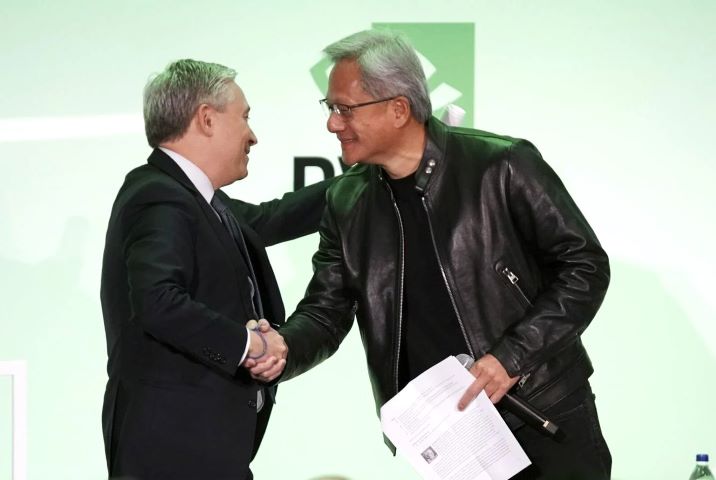Canada signs letter of intent with AI giant Nvidia
Canada has signed a letter of intent with artificial intelligence (AI) chip giant Nvidia to boost the country’s computing power.
Canadian Industry Minister François-Philippe Champagne announced the signing of the document with California-based Nvidia on X (formerly Twitter). However, the contents of the letter remain undisclosed following Nvidia CEO Jensen Huang’s visit to Toronto.
Canada signs letter of intent with AI giant @nvidia during CEO’s trip to Toronto.
Huang considers Canada the birthplace of modern AI because two “godfathers” of the technology, Yoshua Bengio and Geoffrey Hinton, long completed AI research in
.
https://t.co/7xzLKX10on pic.twitter.com/SRW7JeOA50— François-Philippe Champagne (FPC)
(@FP_Champagne) February 2, 2024
“Minister Champagne wants my support to ensure that Canada can have access to leading-edge technology so that it could, with necessary funding, build its own infrastructure and I’m very enthusiastic about that.
“We’ve been a partner of Canada since the beginning of deep learning … and so this is a very important region for us to invest in, a very important country for us to invest in,” Huang told The Canadian Press in an interview.

Canada isn’t the sole advocate for prioritizing AI infrastructure. According to Huang, countries like Japan, South Korea, Malaysia, Singapore, Britain, France, and Italy are all tuned into the importance of this topic. Nonetheless, the opportunity for Canada in this realm is distinct and noteworthy.
Huang views Canada as the birthplace of modern AI, attributing this to the significant contributions of AI pioneers Yoshua Bengio and Geoffrey Hinton. Both researchers conducted groundbreaking AI work in the country, leading to their joint reception of the A.M. Turing Award, often hailed as the “Nobel Prize of computing,” alongside Yann LeCun.
Also Read: Nvidia to prioritise Japan in supply of AI processors
“Canada has such deep and quite significant in scale AI research, between Montreal and Toronto. Don’t squander that and make sure that these researchers have the instruments they need, the funding they need to continue to advance the science they, in a lot of ways, invented.” Huang said.
Previously, Huang shared the stage alongside Raquel Urtasun from autonomous driving company Waabi, Aidan Gomez representing AI standout Cohere, Alán Aspuru-Guzik of the Vector Institute, and Brendan Frey from drug discovery firm Deep Genomics.
“There are a lot of different things that we have to do in order to accelerate the ecosystem here in Canada.
“Part of it requires the encouragement and support of government, part of it is about inspiring a young researcher to continue to do research here in Canada, and part of it is about creating the opportunities for them … after they graduate.” Huang told the audience.
He underscored that Canada is not lacking in research or talent, a sentiment echoed by Stephen Toope, the president of the Canadian Institute for Advanced Research.
However, Toope highlighted a concerning trend, citing a report from U.K. firm Tortoise that indicates Canada’s global ranking in AI talent has declined in recent years. The nation’s ranking in AI capacity, which assesses AI adoption and development capabilities, has also experienced a dip. Notably, its AI infrastructure ranking slid from 15 to 23 between 2021 and 2023, a development that raises concerns for Toope.
Toope advocates for an alternative approach, steering away from chip manufacturing. Instead, he proposes the adoption of a purchasing consortium, supported by the Canadian government and inclusive of both public and private entities. This collaborative effort aims to enhance the country’s efficiency in procuring computing capacity.



Comments are closed.